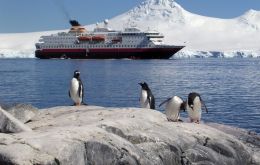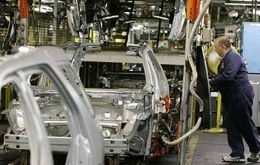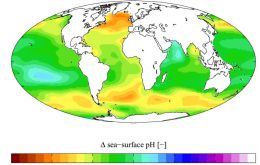MercoPress. South Atlantic News Agency
Stories for April 24th 2010
-
Saturday, April 24th 2010 - 11:08 UTC
Exchange Rate Disorder

By Jose Antonio Ocampo – Two troubling features of the ongoing economic recovery are the depressed nature of world trade and the early revival of international global payment imbalances. Estimates by the International Monetary Fund and the United Nations indicate that the volume of international trade in 2010 will still be 7% to 8% below its 2008 peak, while many or most countries, including industrial nations, are seeking to boost their current accounts.
-
Saturday, April 24th 2010 - 08:20 UTC
Chile/Argentina Agree on Military Cooperation and a Joint Force for UN Peace Tasks

Chile and Argentina agreed Friday an ample cooperation in military issues including the design and manufacturing of a joint aircraft for their respective air forces and the training of a rapid deployment force in support of United Nations peace missions.
-
Saturday, April 24th 2010 - 08:08 UTC
Brazil to Sell Bonds in Global Markets Given Lowest Borrowing Costs Since 2007

Brazil plans to sell bonds in international markets in coming weeks, taking advantage of the lowest borrowing costs since October 2007, Treasury Secretary Arno Augustin said.
-
Saturday, April 24th 2010 - 07:51 UTC
Coming Antarctic Season 2010/11, the Last for Big Cruise Ships

The Antarctica season beginning in November is likely to be the last one as it has been known. Proposed changes to the type of fuel ships are allowed to burn and carry in this fragile ecosystem have now become a reality, making the future of big cruise ships in Antarctica uncertain.
-
Saturday, April 24th 2010 - 07:42 UTC
Colombian Green Party Presidential Candidate Closing in on Incumbent Hopeful

A newly released poll shows former Bogotá Mayor Antanas Mockus winning the Colombian presidency if the contest comes down to a runoff. The first round of the election will take place May 30 and is a runoff is needed on June 20.
-
Saturday, April 24th 2010 - 07:34 UTC
US Navy Celebrates Earth Day With Flight Test of “Green” F/A Super Hornet

The United States Navy celebrated Earth Day April 22 by showcasing a flight test of the “Green Hornet,” an F/A-18 Super Hornet multi-role fighter jet powered by a 50/50 blend of conventional jet fuel and camelina aviation bio-fuel.
-
Saturday, April 24th 2010 - 07:28 UTC
Volcanic Ash Cloud Costs European Tourism 2.3 Billion USD Losses

Air traffic disruptions caused by the volcanic ash cloud from Iceland inflicted losses on the European tourism sector worth 2.3 billion dollars (1.7 billion Euros), the United Nations World Tourism Organization (UNWTO) estimated Friday.
-
Saturday, April 24th 2010 - 07:20 UTC
Argentine Industrial Production Up 10.65 in March Over a Year Ago

Argentine industrial output surprised market expectations in March, powered by an increase in auto production, the latest sign of a strong rebound in Latin America's number three economy.
-
Saturday, April 24th 2010 - 07:13 UTC
Global Warming Contributing to Rapid Ocean Acidification

Carbon dioxide emissions that contribute to global warming are turning the oceans more acidic at the fastest pace in hundreds of thousands of years, the U.S. National Research Council warns.
-
Saturday, April 24th 2010 - 07:05 UTC
US Credit Agencies Influenced by Banks that Paid Their Fees, Says US Senate

The behaviour of two credit rating agencies in the run-up to the financial crisis has been criticised by US senators following an investigation.
